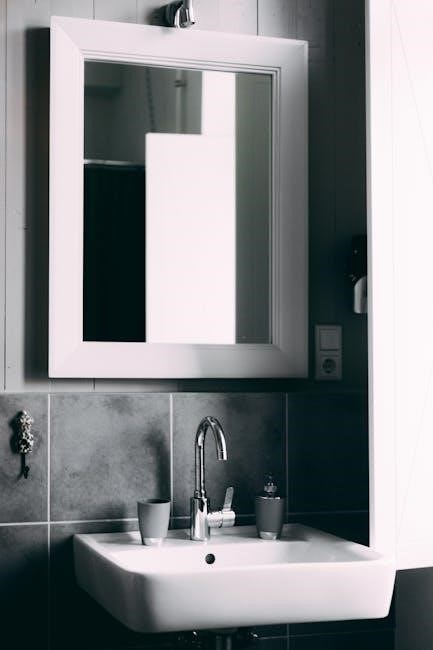Wisconsin Plumbing Code (SPS 382): An Overview
The Wisconsin Plumbing Code (SPS 382) is essential for ensuring the safe and effective installation of plumbing systems throughout the state. It governs design, construction, installation, supervision, maintenance, and inspection of plumbing to protect public health.

Accessing the Wisconsin Plumbing Code
For the most current Wisconsin Plumbing Code information, utilize the convenient links provided that will direct you to the official State of Wisconsin’s website. Accessing the source ensures accuracy.
Official State of Wisconsin Website
The most reliable and up-to-date version of the Wisconsin Plumbing Code is accessible through the official State of Wisconsin website. This ensures users have the correct and current regulations. Navigating to the state’s website allows direct access to the full code, including any recent updates or amendments.
The official website also provides supplementary materials, such as informational guides and clarifications, that can help in understanding the code’s requirements. By using the official source, individuals can be confident they’re working with the most accurate information for compliance purposes.
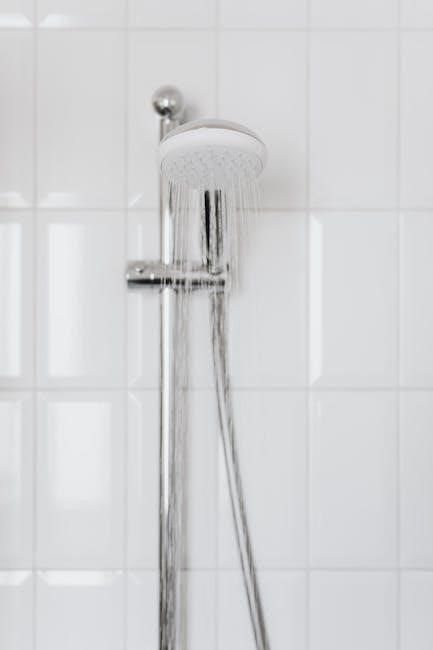
Key Aspects of the Wisconsin Plumbing Code
The Wisconsin Plumbing Code encompasses various critical elements, including scope, design, construction, installation, and maintenance. It also focuses on inspection and supervision processes to ensure compliance and safety.
Scope and Application (SPS 382.01)
SPS 382.01 defines the scope and application of the Wisconsin Plumbing Code, ensuring uniform application to plumbing design, construction, installation, supervision, maintenance, and inspection. It applies to all plumbing systems within the state, covering new installations, alterations, and repairs. The code’s provisions aim to safeguard public health and safety by setting minimum standards for plumbing systems. This section clarifies which types of plumbing work fall under the code’s jurisdiction, outlining specific inclusions and exclusions to provide clear guidance for plumbers, inspectors, and building owners. Understanding the scope is crucial for compliance. It helps ensure consistent enforcement of plumbing standards across Wisconsin.
Design, Construction, Installation, and Maintenance
The Wisconsin Plumbing Code emphasizes proper design, construction, installation, and maintenance of plumbing systems. These elements are crucial for ensuring functionality, safety, and longevity. The code provides detailed specifications for materials, pipe sizing, fixture requirements, and venting to prevent issues such as leaks, backups, and contamination. Proper installation techniques are essential to avoid future problems and ensure compliance with code requirements. Regular maintenance is also vital to prevent deterioration and maintain optimal performance of plumbing systems. Adhering to these standards is critical for safeguarding public health and ensuring efficient and reliable plumbing systems throughout Wisconsin. Regular maintenance helps in detecting any potential issues early.
Inspection and Supervision
Inspection and supervision are critical components of the Wisconsin Plumbing Code. These processes ensure that plumbing installations comply with the established standards and regulations. Wisconsin-licensed master or journeyman plumbers typically perform plumbing inspections. Inspections are conducted at various stages of the plumbing work, from the initial installation to the final completion. The supervision aspect involves overseeing the work of plumbers and ensuring they adhere to the code requirements. Proper inspection and supervision help identify and rectify any deficiencies, ensuring that plumbing systems are safe, functional, and compliant. The Division of Industry Services (DIS) offers consultation, inspection, and plan review services. These measures are vital for protecting public health and safety.
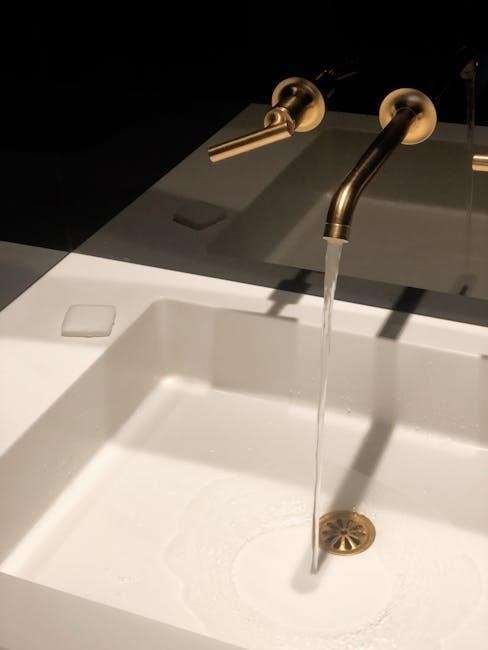
Updates and Amendments
The Wisconsin Plumbing Code is periodically updated and amended to reflect changes in technology and best practices. The Plumbing Code Advisory Committee plays a role in these revisions.
Recent Updates (October 1, 2023)
Significant updates to the Wisconsin Plumbing Code took effect on October 1, 2023, marking the first revisions since 2009. These changes address various aspects of plumbing systems. SPS 381.20 (2) outlines specific requirements. These updates ensure code alignment with modern practices. They also incorporate technological advancements. The revisions aim to enhance water conservation. Furthermore, they improve safety standards within plumbing installations. Staying informed about these updates is crucial for plumbing professionals. It is also important for inspectors and anyone involved in plumbing-related work in Wisconsin. Access the official state website for detailed information. Review the updated code language for full compliance. These updates reflect Wisconsin’s commitment to safe and efficient plumbing practices. They address evolving industry needs and protect public health.
Plumbing Code Advisory Committee
The Wisconsin Plumbing Code Advisory Committee plays a crucial role in the development and maintenance of the state’s plumbing code. This committee comprises experts and stakeholders. They provide valuable input. They ensure the code remains current, effective, and relevant to industry needs. The committee reviews proposed changes and amendments. Then, they offer recommendations to the Department of Safety and Professional Services (DSPS). Their expertise helps to balance safety, innovation, and practicality. They also consider the impact of code changes on plumbers, contractors, and the public. Committee members represent various sectors. This includes plumbing professionals, engineers, and regulatory agencies. Their collaborative efforts contribute to a well-informed and comprehensive plumbing code. The committee meetings are open to the public. This provides an opportunity for stakeholders to participate in the code development process.
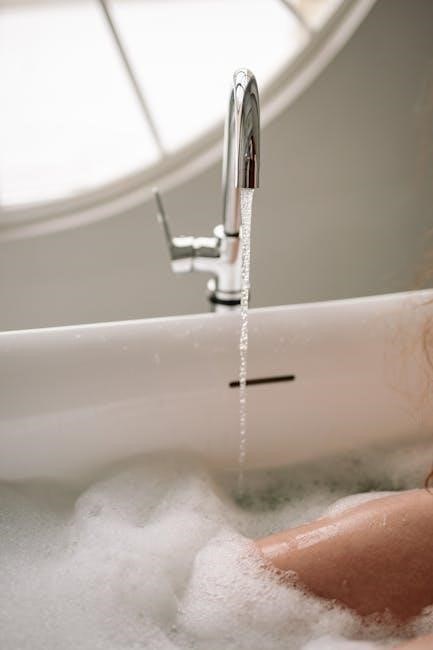
Plan Review Requirements
Wisconsin mandates plan review for plumbing projects meeting specific criteria. This ensures compliance with SPS 382. Plan review is essential when installing 16 or more plumbing fixtures.
Fixture Count Threshold (16 or More)
An important criterion within the Wisconsin Plumbing Code relates to the number of plumbing fixtures being installed or altered. Specifically, when 16 or more plumbing fixtures are newly installed or significantly impacted by alterations or additions, a plumbing plan review becomes mandatory. This requirement ensures that larger plumbing projects adhere to the code’s standards for safety and efficiency.
The fixture count threshold helps to identify projects with a greater potential impact on the plumbing system and public health; By mandating plan reviews for these projects, the state aims to prevent code violations, ensure proper installation practices, and safeguard water quality and sanitation. This proactive approach reduces the risk of future plumbing issues and protects the well-being of building occupants.
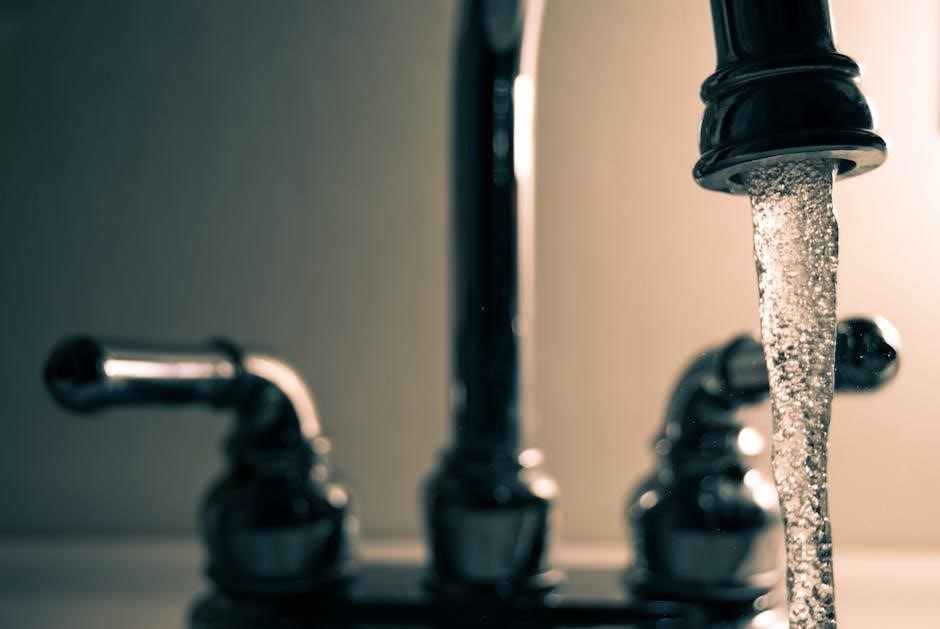
Resources and Support
For assistance with the Wisconsin Plumbing Code, resources like PHCC-WI offer code books and manuals. The Division of Industry Services (DIS) provides consultation, inspection, and plan review services.

PHCC-WI (Plumbing Heating Cooling Contractors of Wisconsin)
The Plumbing Heating Cooling Contractors of Wisconsin (PHCC-WI) serves as a crucial resource for plumbing professionals in the state. PHCC-WI provides access to essential materials, including Wisconsin Uniform Plumbing Code books, Private On-Site Wastewater Treatment System (POWTS) manuals, and plumbing design manuals. These resources are invaluable for ensuring compliance with regulations and best practices.
PHCC-WI supports its members through education, advocacy, and networking opportunities. By offering training programs and industry updates, they help plumbers stay informed about the latest code changes and technological advancements. Their commitment to professional development contributes to the high standards of plumbing services throughout Wisconsin.
Division of Industry Services (DIS)

The Division of Industry Services (DIS) plays a pivotal role in administering and enforcing the Wisconsin Plumbing Code. The DIS provides crucial services such as plumbing consultation, inspection, and plan review to ensure compliance. Their team of experts offers guidance to plumbers, contractors, and homeowners, promoting safe and efficient plumbing practices.
The DIS is also responsible for stormwater management and product review, further safeguarding public health and the environment. By setting standards and conducting thorough evaluations, they contribute to the overall quality and reliability of plumbing systems throughout Wisconsin. Their commitment to excellence ensures that the plumbing code is effectively implemented.

Related Codes and Standards
The Wisconsin Plumbing Code often interacts with other codes and standards. These include the Wisconsin Mechanical Code and potentially the International Plumbing Code (IPC), ensuring comprehensive building regulations and safety.

Wisconsin Mechanical Code
The Wisconsin Mechanical Code is a crucial companion to the Wisconsin Plumbing Code, addressing the regulations for heating, ventilation, and air conditioning (HVAC) systems within buildings. It ensures the safe and efficient operation of mechanical systems, complementing the plumbing code’s focus on water and drainage. Both codes work together to establish comprehensive standards for building systems.
Understanding the relationship between the Plumbing Code and the Mechanical Code is essential for contractors and builders in Wisconsin. Proper coordination between plumbing and mechanical systems is vital for overall building performance and compliance with state regulations. They ensure the health and safety of occupants.
International Plumbing Code (IPC)
The International Plumbing Code (IPC) serves as a model code for plumbing systems, offering a comprehensive set of regulations for the design, installation, and maintenance of plumbing systems. While Wisconsin has its own plumbing code (SPS 382), the IPC provides a valuable reference point for understanding best practices and emerging technologies in the plumbing industry.
The Wisconsin Plumbing Code may incorporate or reference certain aspects of the IPC. Therefore, familiarity with the IPC can be beneficial for plumbing professionals working in Wisconsin. However, always adhere to the specific requirements outlined in the Wisconsin Plumbing Code (SPS 382) for compliance within the state.

